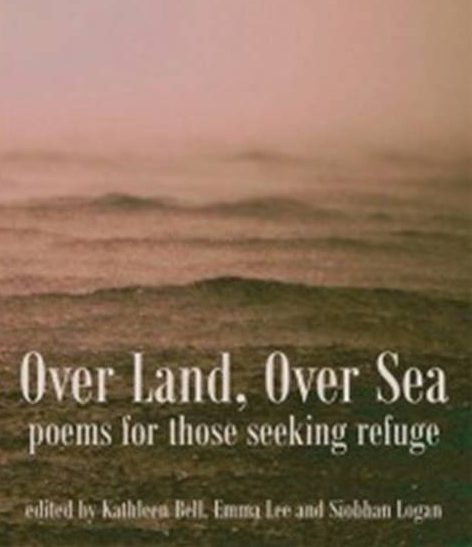The Density of Salt by Kate Garrett
– Reviewed by Grant Tarbard –
Kate Garrett, born in Ohio, has lived most of her adult life as a bona fide Sheffield person. Her mythological and folkloric Three Drops from a Cauldron makes the gold standard of poetry ezines, and this is her base point for her own poetry: she sees fairy tales in yoga mats, myths in loneliness, and pulls legends out of acres of air. She paints with rich colour, her poems like a Prince song spread out before you on the page. She is the founder of Three Drops Press, publishing anthologies and pamphlets; she is also the senior editor for poetry and flash fiction at independent writers collective Pankhearst. Kate’s hot off the press rogue’s gallery is Picaroon Poetry, au courant with the literary scene. She is a busy woman indeed. Her latest pamphlet, The Density of Salt, was released in February this year and long-listed for a Saboteur Award.
The density of salt, bones calcium strong with youth, brittle with age. Everyone loses their youth, the odd grey hair staying over your scalp, the crows make nests on the crevices either side of your eyes. I’ve got a theory that all poetry is about dissatisfaction; I need my pain, to quote Captain Kirk. Garrett realises this from the opening poem, ‘Eighteen Years Later’. The poet has the wonderful feeling of escape;
I stop talking, lock the door
with her “sorry” behind it, turn left
Then the poet is set free in the great wide open:
The only sound
is the stream chanting
its way over rocks, beercans, plastic bottles, tires.
The inventible makes itself known and you have to go back home, to the root of you:
The hour is grey
and the world is waiting
for me to put it back together.
To tackle this subject skilfully, empathy is a must: ageing is the human condition. Garrett peppers her work with humour, evident from poems such as ‘The Girl Wanders’:
the shifting border
between waves, clouds and sand
where she searchesfor lost things
These poems brim with raw-nerved sexual energy, a saline wash of nature at the back of your throat, the aforementioned acres of air. Garrett is vibrant and in the full sorcery of her craft, which leaves the reader gobsmacked by her poems’ tenacity. She uses runes of bone, home brewed witchcraft, a fulcrum of charms that lead you down alleys of bitter pills, affection and candour.
A good example of this is ‘When I Think About Hans Christian Andersen’.
I have duvets,
yoga mats, my old baby blanket.There is no pea waiting there to test me
but sometimes I feel the pinch
of 1991 in the hollow of my back
This is a Van de Graaff generator of a poem, charged, it’s lines hum like shuffling your feet across the carpet and shocking yourself on the doorknob.
She pushes up through
the sheets, into my skin,your whispers drowned out
by the thud of a washing machine
spinning her clothes;my sparrow hips threaten
collapse under the thought
of her missing collarbones
‘Once You Were Midnight’ shows how one can have empathy with one’s younger self, and with one’s choices: you can’t backlash against them for they make the whole you. The fairy tale is invoked again with the first line:
Once upon a time you were heaven sent;
once you were latex and imitation leather
and once you were midnight.Midnight smelled of sex
smeared on a front step
in a city where no one sees you anyway.
Loneliness and sexuality, forever bed fellows, Jim Morrison’s bottled ooze, pangs of embarrassment only perceived after the fact:
Stumbling down stairs into a rack
of imported pornography
and falling into menwho look at you
and flash pointed grinswho look at glossy twists
of tits, arms, legs.
Finally I want to talk about ‘Nest’, an affectionate ode embedded with wild flower seeds.
Soft waves roll like sand, sea
and close the distancebetween the glow
of your skinand me:
a mermaid in reverse.I’ve been a little girl
with awkward feet
who swims to drownuntil now
Cogent as much as it is bewitching, and, to mangle a quote from Bertolt Brecht; our theatre, in this case poetry, must stimulate a desire for understanding, a delight in changing reality. Mythology contorts around you and Garrett feels this in her marrow, she drinks it like the she-wolf milk that fed Romulus and Remus. The poetry audience must experience not only the ways to free Prometheus, but be schooled in the very desire to free him. Garrett has the fire we seek, free her.






Just ordered by post.